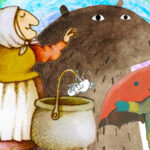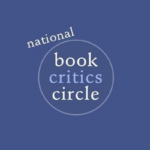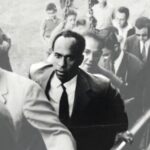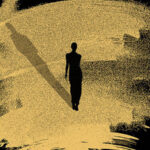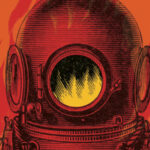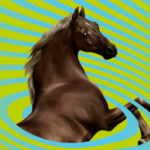Dawnie Walton on American Concert Culture and the Summer of Love or Hate
In Conversation with Whitney Terrell and V.V. Ganeshananthan on Fiction/Non/Fiction
Journalist and novelist Dawnie Walton joins co-hosts Whitney Terrell and V.V. Ganeshananthan to talk about U.S. concert culture. Why are live concerts so popular this summer and why have they so often become violent? Walton discusses how recent examples of fan violence speak to racism and sexism in American culture, as well as the role social media plays in fandom. Finally, she reads from her 2021 novel, The Final Revival of Opal & Nev, which focuses on the fictional partnership between a Black American woman, singer Opal Jewel, and a white British man, guitarist Neville Charles, and discusses her story’s connection to the infamous Altamont Free Concert in 1969.
Check out video excerpts from our interviews at Lit Hub’s Virtual Book Channel, Fiction/Non/Fiction’s YouTube Channel, and our website. This episode of the podcast was produced by Lynn Snyder and Anne Kniggendorf.
*
From the episode:
Whitney Terrell: Dawnie, we were theorizing that concerts are more popular than ever. They do seem to be, and Live Nation stock is up 60 percent, and demand for Taylor Swift tickets crashed Ticketmaster earlier this year. You’ve written about music as a journalist. Why is this happening? Why are we having this thunderous reception for concerts this summer?
Dawnie Walton: Well, I think it ties in with a couple of different things. One of them is a reason that I think my novel seemed to resonate with when it came out in 2021. At that point, we’d been in the pandemic for a full year, and people really missed communal experiences, like concerts. And so the novel tapped into that yearning. But it’s more than that, because it hasn’t been that theater is thriving, or that movies outside of Barbie and Oppenheimer are doing huge numbers.
There’s something unique about music, and the music that you love and you identify with and that you see yourself in, and the feeling that you have when you hear live music. It channels these extreme emotions, and when you’re screaming at the top of your lungs and jumping up and down with your fellow fans, it’s like that catharsis, that release. It’s a time where I think we want a lot of catharsis and release. I honestly have not been to a concert since before the pandemic, but I have been very tempted, especially when I saw The Cure was on tour. Nostalgia is my whole thing, as well as my desire to see the artists before they’re gone, because we’ve lost a lot of them way too young recently.
WT: I really like that idea. It’s not just that it’s a live event, because there are other live events that aren’t doing so great, and that is true about theater. Music is less political than a lot of things. It is—music is a feeling. I don’t know about you, but I find myself every day listening to podcasts and being incredibly depressed about the incredibly bad news about Trump running again and then the GOP House is doing something insane. And people are constantly seeing this gnawing authoritarian creep in the country. It’s nice to escape that sometimes. Is that what you mean by talking about the need to find a release or escape from that?
DW: Yeah, but I think also, there’s something about music that people tie their personal identities to. And I think in that way, it can be very political, but you want to be in a room of very passionate people who are aligned with you. Sometimes that’s for better, and sometimes that’s for worse, as we’ve seen in the news recently. But yeah, I think it’s just that extreme community.
When I was growing up, it was less digital and more like, you wore T-shirts, or if you liked The Cure, for instance, you maybe went through a goth phase. And it had to do with your physical presence in a room and the people you hung out with, and all of those things. I just think it’s more intrinsic to who you feel you are on the inside.
V.V. Ganeshananthan: You’re totally right, that theater, for example, is really in trouble. And that’s a community space. Also, just the accessibility of it. Theater is more expensive.
WT: But you also don’t get to dance around and scream—
DW: Yeah! You have to be silent!
WT: —and mosh pit at the theater.
DW: And then there’s alcohol!
VVG: Exactly! Exactly! Music is an invitation to participation, the barrier to entry is lower, and it’s a shorter time commitment. If you wanted, for example, to listen to your favorite song on repeat, you could do it many, many times in a day and make it a part of your identity in a way that—you know, there are movies that I’m attached to in the same way I am to certain songs, but there’s far fewer of them.
Also—maybe you guys got this news, too—but I have mixed feelings about subscribing to Spotify, and they just got more expensive. The artists are not getting that money. But it has made this huge catalog of music. Maybe it has broadly made more musicians more popular in other ways, even if they’re not getting paid in the right way for their music.
DW: Yeah, live music is really where artists are making their money. The streaming is pennies; it’s not very much money. The models are also completely different. But touring can be very lucrative for an artist. Another thing I want to say is that musicians are special as entertainers because I think we hear the music, we listen to the lyrics, and we feel like we know that artist. It’s not like actors where you know they’re playing a role and there’s a distance between that artist and the audience. It’s like being in a room with somebody very famous that you feel like is your best friend. And that is an experience that people are going to want to pay for.
VVG: I like that and that makes sense as to why the joy of this summer’s concerts—Beyoncé and Taylor Swift in particular; at least that’s the conversation around here—feels really palpable.
But now, as we’ve been talking about, artists are also vulnerable to objectification online and onstage. And there is a recent article in Cosmo UK in which a psychotherapist, Ella McCrystal, was quoted saying, “Violence against artists, including physical assault, is a reflection of broader societal issues such as gender-based violence, harassment, and lack of respect for personal boundaries.”
So we’ve been citing these recent examples of fan violence, and I wonder if you could talk a little bit about the extent to which that sort of behavior has always been a part of the concert scene and whether it seems different to you today.
DW: I’m not sure what was happening in the earliest days of rock ’n’ roll, little tiny juke joints and all that, but certainly by 1969, there was violence and chaos on a very large and headline-grabbing scale. And, you know, we’re probably going to talk about the Altamont Free concert and how that influenced the novel. But yeah, along with the Manson murders, that was basically considered the end of the love-and-peace hippie era.
And by the late ’70s and ’80s, of course, you have mosh pits. But that scene—there are really unspoken rules to that. So what comes to mind for me when I was thinking about this question was actually Woodstock ’99. And there are many documentaries and a ton of journalism about what went wrong there. And how it wasn’t just the aggression, or the misogyny of the music or the lyrics, but the really the capitalist impulses of the organizers that really fueled the rage and the ugliness that happened there. But one of the things that my novel is putting forth is that things may come in slightly different packages, but they’re the same—these are cyclical things. And until the underlying issues in the culture are properly addressed, we’ll probably continue to see some ugliness in these scenes, as well as the beauty and the connection that we feel to the music, because the art and the culture is always going to reflect the times.
WT: I was remembering the summer that the Black Lives Matter protests happened. And that was during COVID. That was the one outdoor thing that I went to. And those protests were important and visceral, but also could be very joyful behind the lines, you know, if you’re not right on the front of something that’s happening, or if you’re in a city like Kansas City that wasn’t specifically protesting a murder, but having a general protest. And I wonder if this summer’s intensity is a different kind of channeling of the same impulses that were making people want to go to those protests at that time. Does that sound like a crazy theory?
DW: Oh, no, not at all. I think that could be part of it. I mean, I think it’s a time where people are feeling a lot of different things, and without, possibly, a lot of ways to channel those feelings, or those desires for joy. And I think concerts can provide that joy, or, depending on the show you go to, can also tap into some darker stuff as well.
*
Dawnie Walton
The Final Revival of Opal & Nev
Others:
“It’s ‘Bey Day’ in ‘Swiftieapolis,’” by Tommy Wiita, Bring Me The News • “How Taylor Swift Broke Ticketmaster,” by Spencer Kornhaber, The Atlantic, Nov. 18, 2022 • “No report filed for alleged attack at Monica concert: Detroit police,” by Jakkar Aimery, The Detroit News • “Bebe Rexha Hit in the Face by Thrown Cell Phone at NYC Concert,” by Tim Dickinson, Rolling Stone • “Ava Max and Bebe Rexha were attacked by men on stage at their own concerts, why?” by Furvah Shah, Cosmopolitan Magazine • “The Chaos of Altamont and the Murder of Meredith Hunter,” by Sasha Frere-Jones, The New Yorker, Mar. 28, 2019 • “Jason Aldean’s ‘Small Town’ is part of a long legacy with a very dark side,” by Amanda Marie Martinez, National Public Radio • “The traumatic story of Merry Clayton and The Rolling Stones,” by Arun Starkey, Far Out Magazine, Dec. 25, 2021 • Black Country Music: Listening for Revolutions, by Francesca T. Royster




